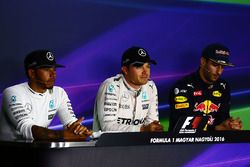Felipe Massa: F1 needs stricter yellow flag rules
In his latest column, Felipe Massa looks back at a trying Hungarian GP weekend - and gives his take on the yellow flag controversy.

Photo by: Williams

Felipe Massa
Felipe Massa is a Brazilian Formula One racing driver who currently drives for Williams.














I said before the Hungarian Grand Prix that it would not be an ideal track for our car, but the Hungaroring was much harder than I expected.
The first problem came in qualifying, and that then had a huge impact on how the rest of the weekend panned out. After the torrential downpour in the early part of qualifying, I had switched to intermediate tyres as the track was drying out.
The timing was not wrong, because at the first two corners the grip was good. But when I arrived at the exit of Turn 4, I put the rear tyre on the while line at the end of the track and lost the back end.
I tried to regain control of the car but it was not possible, and I ended up in the barriers. The result was 18th place on the grid – and the Hungaroring is not a track when making up positions is so simple.
But any slim hope I had of being able to deliver a recovery drive were dashed even before I got to the grid when I experienced a problem with the power steering. The steering was very soft to the left and very hard to the right.
This was probably as the result of a problem during the re-assembly of the car on Saturday night, and in the race I struggled so much with a car that was very difficult to drive.
The only goal I gave myself was to try to finish the race – and it was something not so easy to do given the effort that was involved in overcoming the problems while driving. To have made it to the end was the only bright spot from Sunday.
Yellow flag controversy
In Budapest there was much discussion about the pole position of Nico Rosberg, which had been obtained despite him running through some double-waved yellow flags.
Nico apparently slowed down in order to convince the stewards that he had done the correct thing, but I think the ultimate problem in this situation is elsewhere in the system.
The rules regarding yellow flags do not state clearly how much you have to slow down in case of a yellow flag or a double-waved yellow flag. I think it needs a number – perhaps a fixed percentage in accordance with previous laps at this point.
Otherwise it could happen that someone slows down a tenth, and others slow down by six tenths – and they are the ones who are penalised.
I believe, and I hope, that this incident will lead to a clarification of the yellow flag rules – and perhaps as early as Hockenheim.
2009 reflections
The timing of the Hungaroring weekend meant the Monday after the race was the anniversary of that day in 2009 when I realised the true value of life.
It was on July 25 when I had my accident in qualifying for the 2009 Hungarian GP, and it is a date that I see as something akin to a rebirth.
Many people have asked me if that incident influenced my life as a driver, and the answer to that question is no. When you are out on track, you have total concentration on the work you are doing.
Even when I am on the very same bit of track where I had the crash in 2009, I don't even think about what happened because a driver is so fully concentrated on what he is doing behind the steering wheel.
But what did change afterwards was my respect for life. Before that Saturday in 2009, I never imagined that something like this could have happened.
Sure, you hear every now and then that other drivers had an accident, but you learn and you think that something like this will never happen to you. But then you realise that you are on a hospital bed and you realise the most precious thing we have - life
That incident helped me understand who the people are I am most close to, and who I could count on most. I must say that what Ferrari did to me was really very nice. I heard the team at my side and in those moments it was very important and special for me.
German GP
I hope that the return to a fast track this weekend represents a chance for redemption for Williams Martini Racing.
On paper, the German Grand Prix track is one that should suit the qualities of our car. I think it is important that we go back to having two cars in the points – and that is why I am hoping for ahead of the trip to Hockenheim this weekend.
Be part of Motorsport community
Join the conversationShare Or Save This Story
Subscribe and access Motorsport.com with your ad-blocker.
From Formula 1 to MotoGP we report straight from the paddock because we love our sport, just like you. In order to keep delivering our expert journalism, our website uses advertising. Still, we want to give you the opportunity to enjoy an ad-free and tracker-free website and to continue using your adblocker.























Top Comments